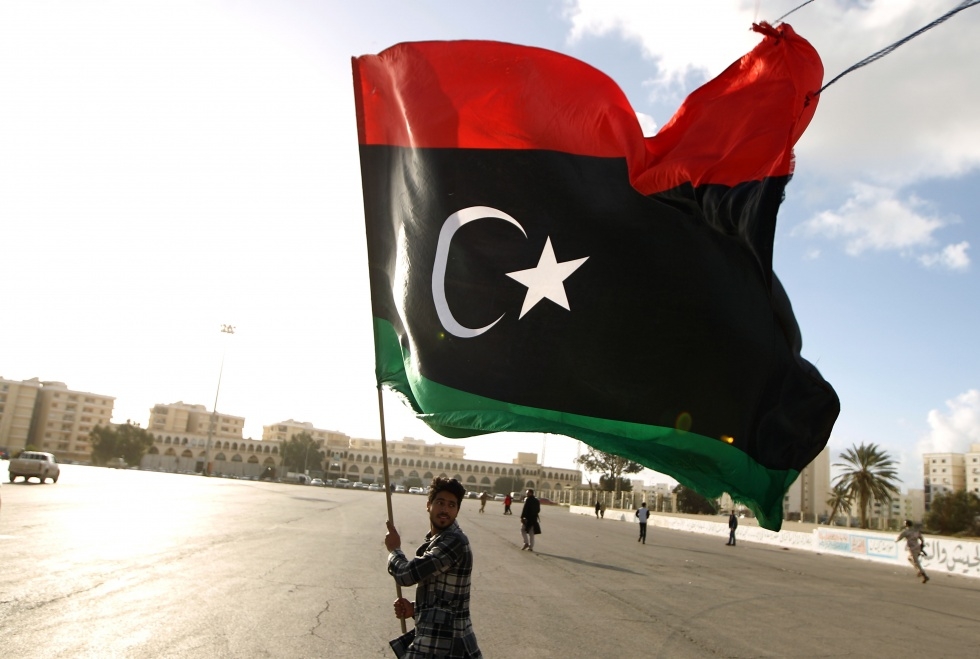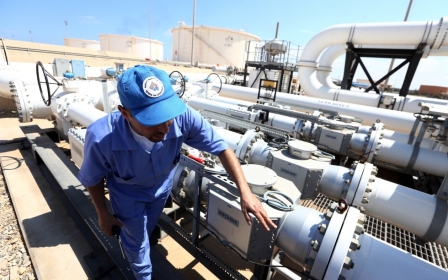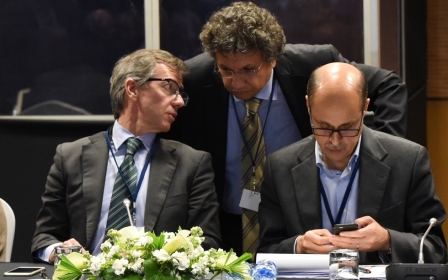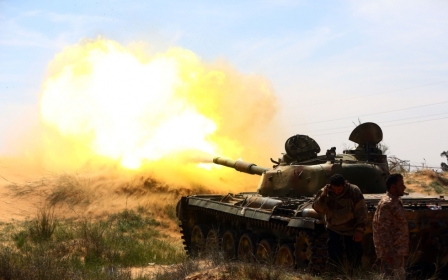Libyans beware: The Trojan horses are on their way

Do not trust the horse, Trojans. Whatever it is, I fear the Greeks even when they bring gifts.
Libya is awash with offers of help. It behoves Libyans to examine these offers extremely carefully, ignoring the "attractive" gift wrapping.
Recent French vociferousness regarding its "grave concern about violence in Libya” and the offer to step up help to stem “the tide of violence particularly in the south of the country” must not be taken at face value. France's "concern" about the southern Fezzan region of Libya is symptomatic of other larger French concerns not entirely shared by Libyans.
French anxieties about dwindling influence among its erstwhile allies in North Africa and the Sahel region are not new. Rather than an increase in the level of violence in Libya, it is the growing closeness between the US and the countries of the Sahel region that has prompted these anxieties to resurface
For the French, nothing illustrates growing US presence in former French colonies more than the increasing American-Algerian cooperation on regional issues including Libya. Consider how in tandem recent Algerian official statements on “reconciliation in Libya” were with those of US officials.
The American-Algerian entente, however, goes beyond singing from the same hymnal on Libya.
During US Secretary of State John Kerry’s visit to Algeria last April, the United States and Algeria initiated “strategic” talks on regional security. The two countries pledged to continue their combined efforts to combat “Islamist terrorism” within Algeria and across the Maghreb.
The US choice of Algeria as its regional partner in fighting “Islamist terrorism” is quite puzzling. It ignores claims by people like Professor Jeremy Keenan, a world authority on the Sahara-Sahel region from the School of Oriental and African Studies (SOAS) who writes of “murky imbroglios” involving the Département du Renseignement et de la Sécurité [DRS] and groups of local extremists,” a claim which former National Security Agency Counterintelligence Officer John Schindler appears to agree with.
So why is the US partnering with Algeria in the face of Western reports indicating that Algeria is not the most credible partner in the proclaimed fight against “Islamist terrorism”? Might the bond between the two countries be something more enduring than a spur-of-the-moment contrived common front to fight “Islamist terrorism”?
Chercher l’huile
The French are convinced that it is all about oil. Algeria is part of a wider policy to vary energy sources in the context of impending supply challenges. By 2035 world oil demand will still exceed production from existing sources, and the demand for gas will have risen.
British government documents obtained by the London-based oil and gas watchdog Platform show that the UK is playing a central role in the drive to cement Western energy ties with Algeria.
The April 2014 co-operation agreement on counter-terrorism effectively joins the two oil-rich sides of the Sahara together in a complex of security arrangements whose architecture is American. This evolved into the Trans-Saharan Counterterrorism Initiative, which was eventually absorbed into the US army’s Africa Command.
The UK strategy thus fits into a broader US-led effort to dominate the region’s untapped oil and gas resources.
The French anxieties go beyond apprehensions about mere international standing and prestige. For the French, the future of their energy supplies is at risk.
From a purely French perspective, France's concerns about the future of its energy needs are understandable. France's attempt, however, to establish a Pax Francia in the Sahel, including a revived “presence in Fezzan” is unacceptable to Libyans.
France's attempts to counter what it perceives as an over-domineering Pax Americana in North Africa and the Sahel is likely to be resisted not only by the US but by Algeria as well.
Libyans meanwhile must keep their eyes wide open to the complexity of what is happening in the region and more importantly develop the ability to see beyond their short political noses or risk finding themselves unwitting tools - pawns and cannon fodder in a game way above their heads.
They need to look the gift horse very closely in the mouth and not shy away from sending it back with a polite yet firm “thank you but no thank you” note.
Sophocles has some good advice for the Libyans:
Nought from the Greeks towards me hath sped well.
So now I find that ancient proverb true,
Foes' gifts are no gifts: profit bring they none.
- Abdullah Elmaazi is a Libyan intellectual and expert on Libyan history and politics. In 1984 he founded Sigma Consult which provided training and consulting services to the oil and gas sector in North Africa and the Middle East.
The views expressed in this article belong to the author and do not necessarily reflect the editorial policy of Middle East Eye.
Photo: France's attempt at a revived 'presence in Fezzan' is unacceptable to Libyans
New MEE newsletter: Jerusalem Dispatch
Sign up to get the latest insights and analysis on Israel-Palestine, alongside Turkey Unpacked and other MEE newsletters
Middle East Eye delivers independent and unrivalled coverage and analysis of the Middle East, North Africa and beyond. To learn more about republishing this content and the associated fees, please fill out this form. More about MEE can be found here.





